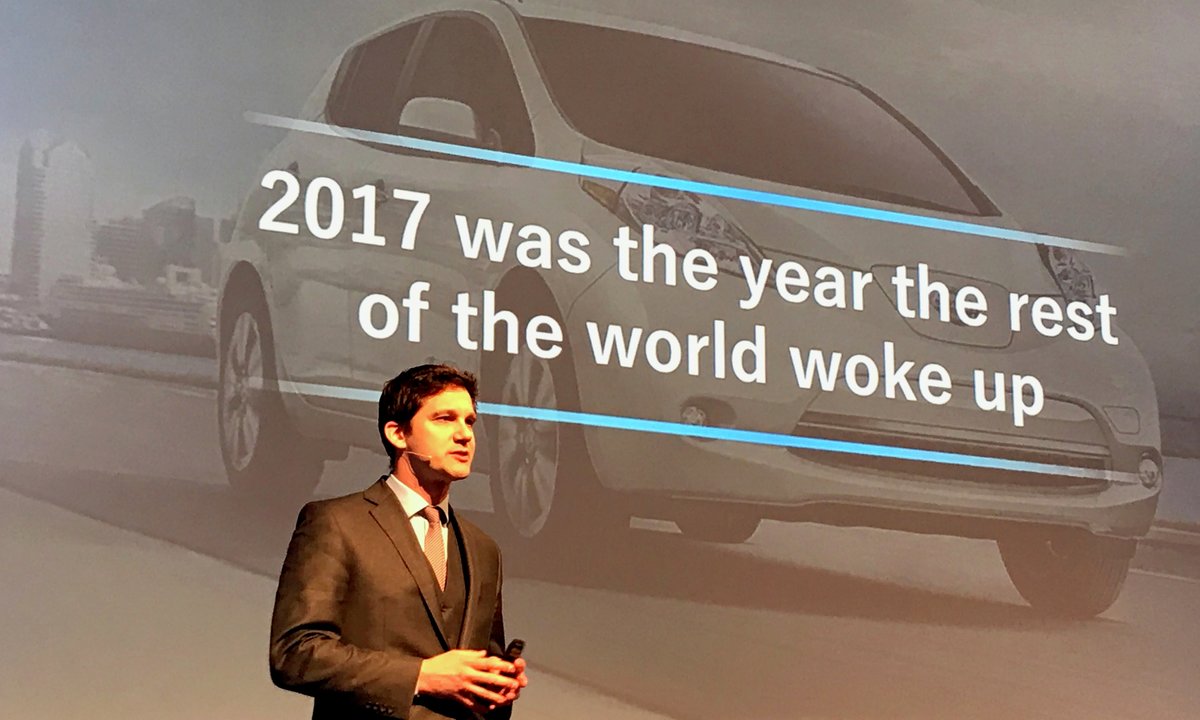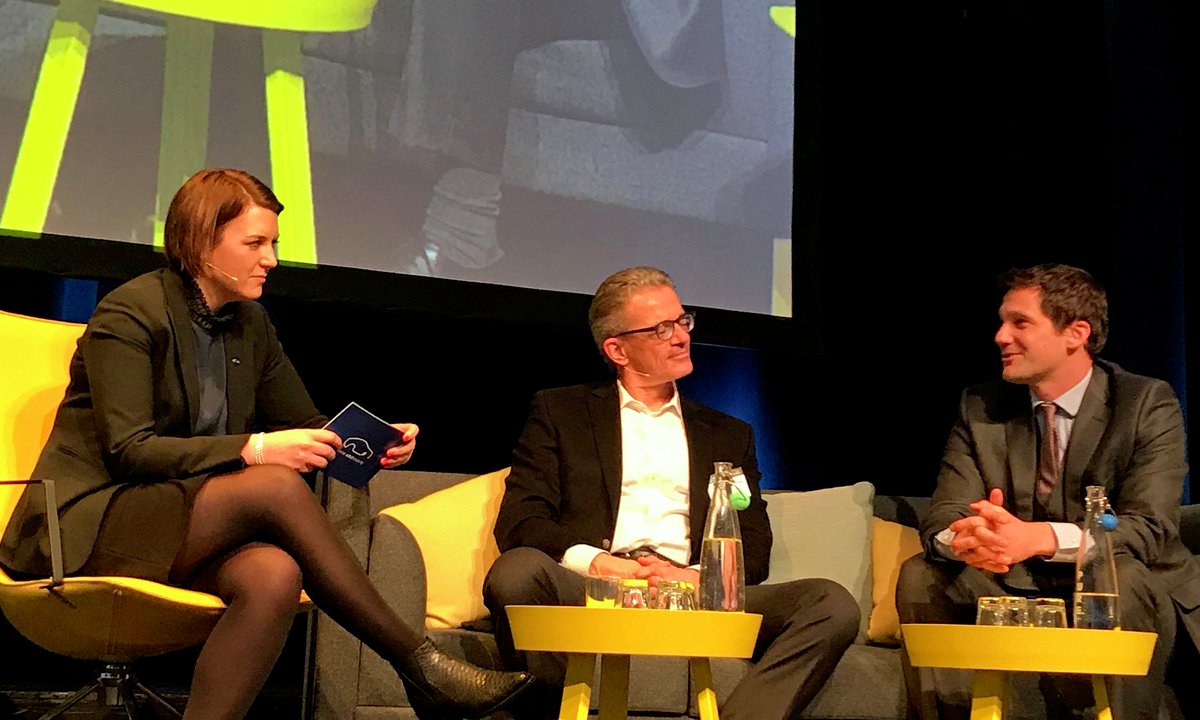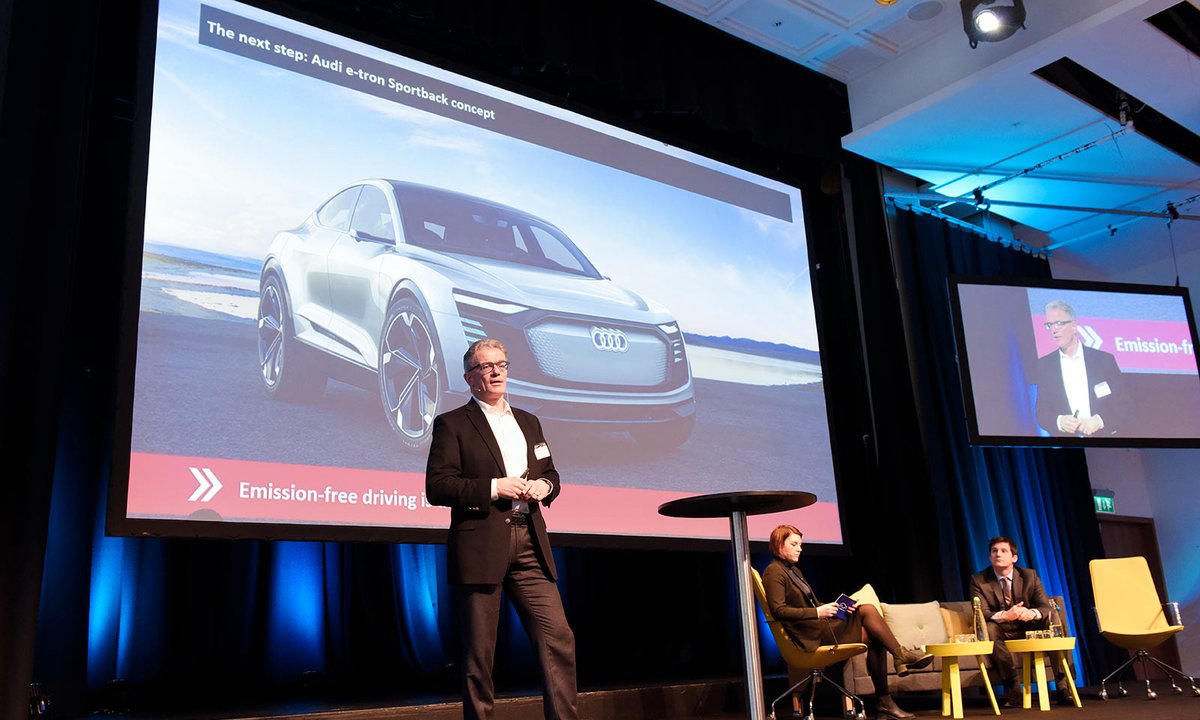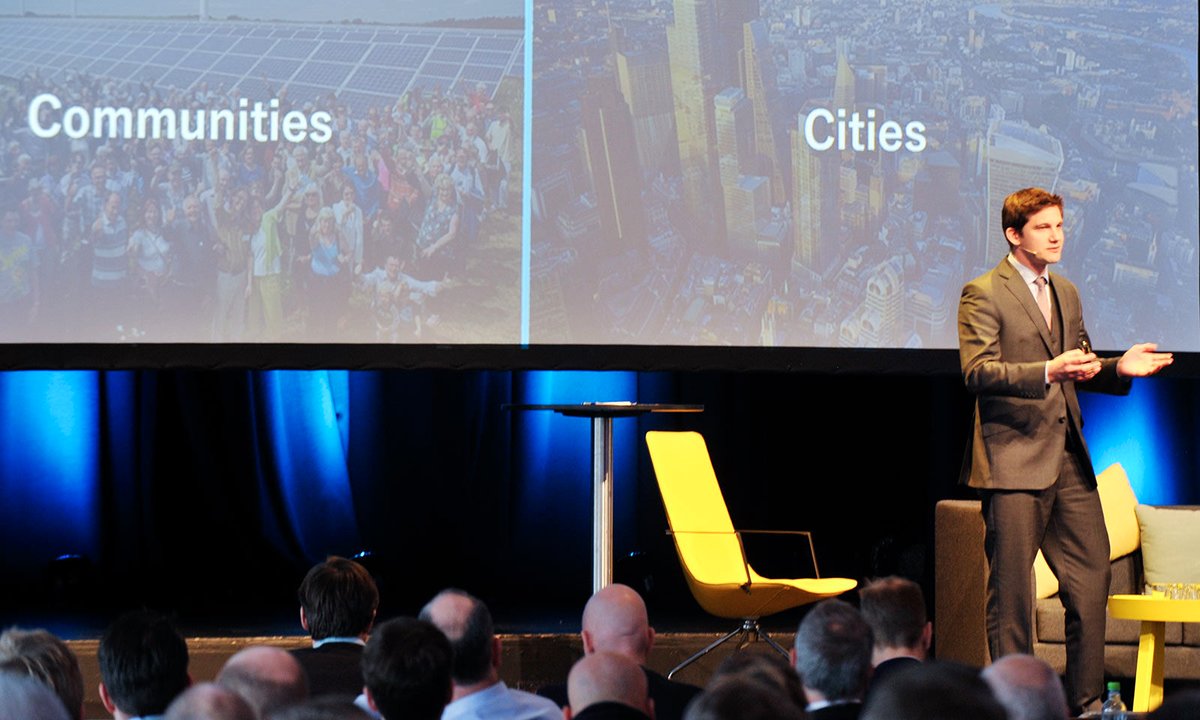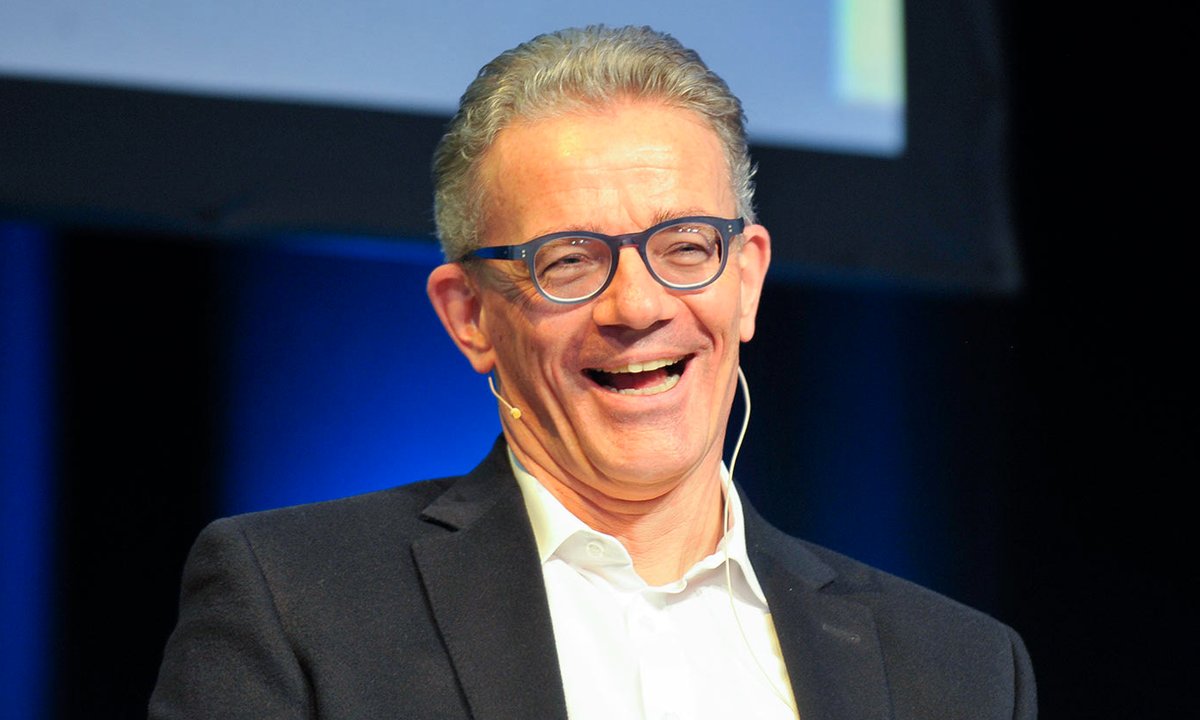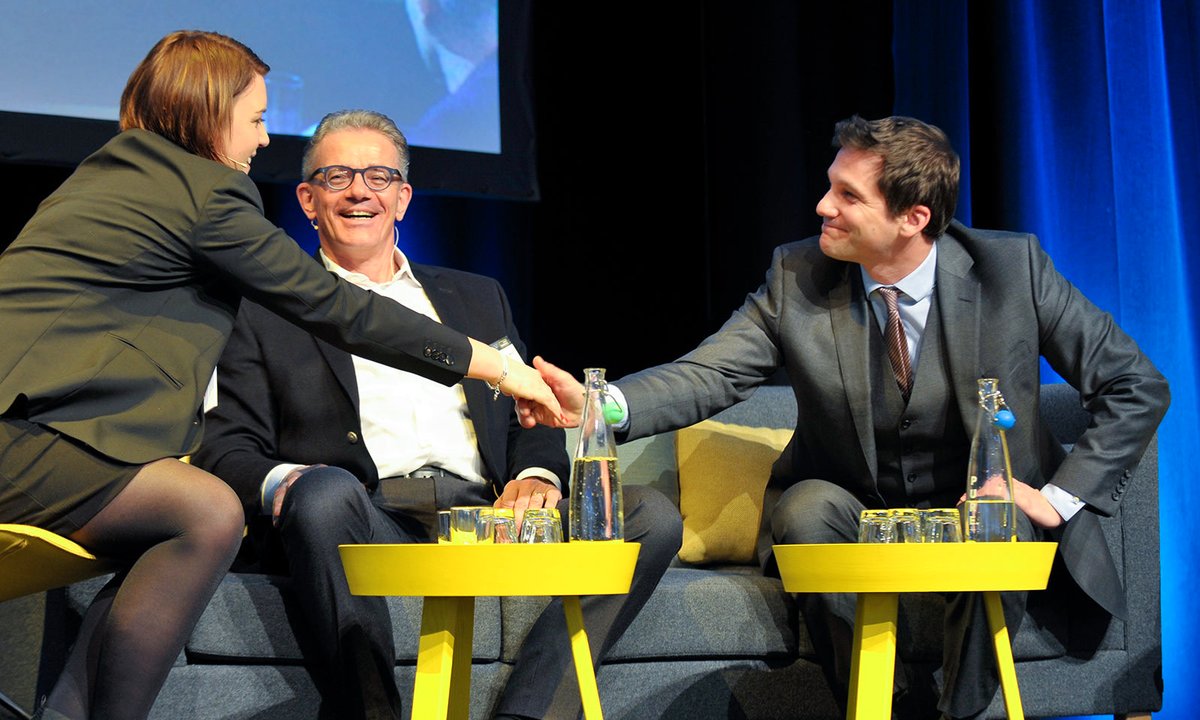Nissan and Audi: Different perspectives on electrification – similar goals
Denne artikkelen ble revidert for over ett år siden, og kan være utdatert.
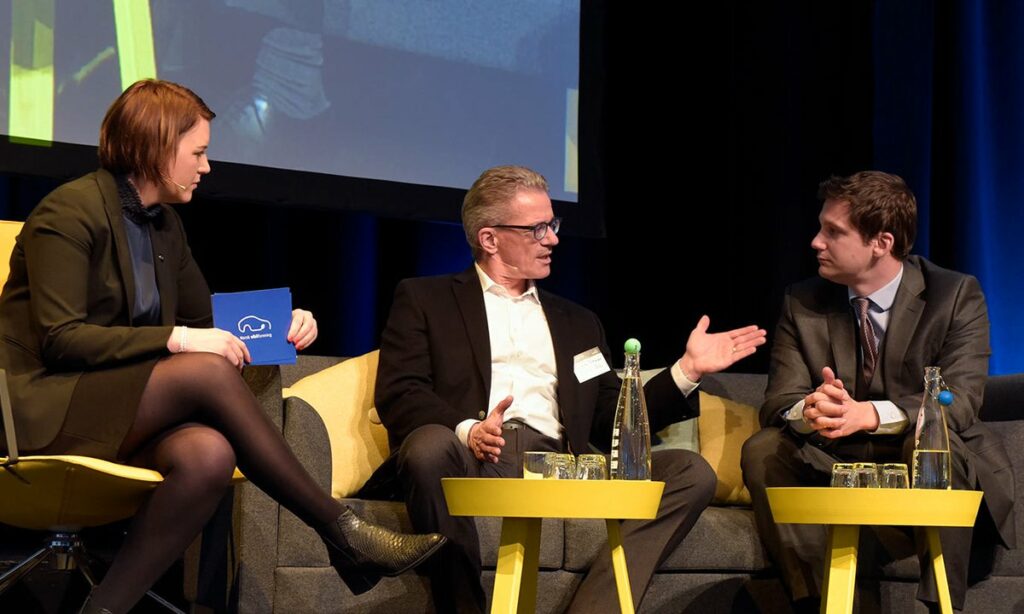
Nissan´s European EV Director Gareth Dunsmore and Audi AG´s Head of Electrification, dr. Stefan Niemand, shared both their different views and similar zero emission goals during Nordic EV Summit last week.
In two articles this week we look back on a very successful Nordic EV Summit with 720 participants, 50 speakers and 40 exhibitors from a total of 33 nations.
Today we bring an extract from the session where the Norwegian EV Association´s Secretary General and conference co-chair Christina Bu engaged in a discussion with Dunsmore and Niemand about the international car industry and its major challenges in the next decade. Stricter emission standards, new competitors, new technologies and new business models. How will the industry cope with changes like electric and autonomous vehicles, car sharing services, mobility on demand and new production methods? And will they be able to ramp up production soon enough?
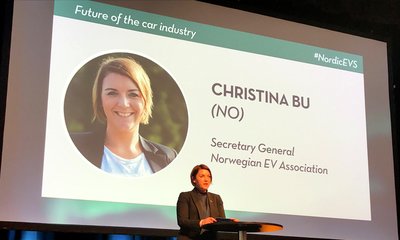
Selling cars with internal combustion engines still creates high revenues based on old investments. At the same time this technology seems to have reached its ceiling, reflected by the Volkswagen diesel emissions scandal.
In short: How important is it to milk the cow until it is completely empty?
Read PDF handouts from Dunsmore, Niemand and other speakers at Nordic EV Summit 2018
2018: «The change is irreversible»
Norway has been a very important for market introduction of BEVs. One example: More than 35,000 of all Nissan LEAFs worldwide (283,000) are rolling on Norwegian roads today. Audi is still a few months away from moving from zero BEV percentage.
Nissan´s Gareth Dunsmore came to Norway for the first time in 2012. He was, and still is, impressed with the Norwegian will to go zero emission.
«Oslo is feeling rather special to me at the moment», Dunsmore said, adding that 2017 was the year the rest of the world woke up.
«The change is both inevitable and irreversible. In 2018 the momentum is increasing, and starting to feel really real. Nissan has already sold 13,000 new LEAFs. Today (Wednesday February 7) a retired policeman will receive the first new LEAF, and I have also seen the first ones arriving in the port of Drammen. 500 upgraded eNV200s are also sold this far.»
Stefan Niemand emphasized that «zero emissions are a vision and an incentive for Audi AG». In his introduction he also underlined Audi´s challenges going electric.
«Fast charging along highways is a «must have», and a critical factor for purchase», said Niemand, adding that this was a decisive basis for the developing IONITY network.
Niemand also claimed that Audi has way higher material costs building the e-tron quattro compared to a Q7 TDI (SUV with a large diesel powertrain), and that the German power grid needs to get cleaner (from today´s 36 percent renewables) to really make the BEV sustainable.
This in contrast to new research showing that BEVs are at least 25 percent cleaner than cars with internal combustion engines, even when run on power generated from coal (Poland), during a full lifecycle.
Audi: «We are pretty sure that we can deliver.»
«You are talking a lot about challenges. What are your ambitions when it comes to electrification, and (looking at Norway) how many BEVs can you deliver?»
Niemand: «I think we can deliver as many cars as the market wants. This is why we decided to make an electric-only factory in Brussels, Belgium. A pilot line. We are pretty sure that we can deliver.»
«If 5,000 Norwegians want an e-tron quattro this year, can you deliver?»
«Uhm. There´s one thing: We step into a completely new technology and I think we learned from other car manufacturers that it is not easy and there are a lot of obstacles. So what we decided to do as a company, was a very slow ramp-up with a very thorough look on quality. I think quality is far more important for the long term success of electric mobility than pushing cars out and getting in trouble afterwards.»
Dunsmore: «Quality is vital to people´s first experience with electric vehicles. Customer demand is also vital. If it isn´t there; in any industry you need to invest in all bits and parts. The LED lamps are just as important as the battery. When you look at the way we build the Nissan LEAF in our factory in Sunderland, next door to our battery plant, they are on the same line as Qashqai. I think it´s important that we challenge ourselves also outside of Norway, growing electrification in other markets as well.»
Different mobility demands
«Nissan has more than 13,000 pre-orders? 4,000-5,000 in Norway?»
Dunsmore: «I think I´ll announce that next week (February 7). You are certainly leading the way.»
«How many BEVs will Nissan sell globally during 2018?»
«Daniele Schillaci, our Head of Marketing, said when LEAF was launched that we should be looking to double or triple from 2017. I do not want to put a limit to our aspirations», said Dunsmore, adding that Nissan has put a lot of effort into training the dealers to help consumers migrate to electric drivetrains.
«Hydrogen has come up a couple of times, but electric vehicles are not a perfect solution – today – for mobility in every single country in the world», Dunsmore said, also talking about a bio ethanol model specifically launched in Brazil.
«This is an e-NV200 with a battery and an electric drivetrain at its core, but we converted it into a bio ethanol fuel cell vehicle. This made it able to travel 500-600 kilometers through the rainforest, and you can fill it up in a local gas station. It is important that we keep looking for other alternatives to drive CO2 emissions down.»
Niemand: «I fully agree. You might know that Audi has the responsibility (within VAG) to develop fuel cell vehicles. If we focus on CO2 emissions we need to find ways. Governments around the world are, at the moment, very much focusing on BEVs only. I am not pretty sure if this is the right way. BEV might be the biggest part of the story, but there might be different answers to different customers and mobility demands. We need to understand that. But the aim is always the same; we need to achieve zero emissions one time in the future.»
Niemand: «Nobody takes the subsidies»
«As far as I´ve heard you have 3.300 preorders in Norway. Is Norway the only country where you have opened up for preorders?»
Niemand: «We are opening three other markets now. The key is that the markets are infrastructure ready. A lot of countries are to follow. The e-tron quattro is not focused on niche markets. It is a world car.»
«How do you view Norway´s contribution to electrification?»
Niemand: «It´s only 0.2 percent of the world market, but Norway has shown what can happen if prices are equal. If you look at what happened in the Netherlands, where they reduced subsidies, people went back to combustion engine cars. It has a lot to do with prices, because people are very price sensitive. We need to understand where is the right price tag, what is the right technology. If you cannot make the car profitable and meet the price point of customers, then it will not happen long term. Governments worldwide can not stand subsidies for the next 10-20 years.»
Dunsmore: «There´s real customer experience with our cars on a daily basis. What I know is that our customers are happier with electric cars than any choice they made before with combustion engines. That gives me a lot of confidence to work harder and support (Norwegian) customers in moving to electric vehicles.»
«In Germany you currently have 4.000 Euro subsidies for BEVs and 3.000 for PHEVs. Cars with prices above 60,000 Euro are not included. I suppose Tesla has something to do with it. How do you feel about this cap, now that Audi is entering the market?»
Niemand: «I personally do not believe in subsidies at all. A market that needs to be subsidized is not a healthy market. It doesn´t show you market reactions. So we never focused on subsidies when developing this car. It was all about meeting the customers price point and demand. We need to have the right features and the right range. We need to have the right charging time. If you meet that, customers will buy anyway. In Germany we have subsidies, but nobody takes them. Why? There is no offer. There is simply not enough on offer. We do not have enough infrastructure. It is a big problem in Germany. We, as a car industry, need to understand how to push electric mobility without subsidies.»
«Although diesel is subsidized?»
«Uhm, our group CEO Mr. (Matthias) Müller said the right things about this. So I would like to add nothing. I think he is right.»
This short and not very fulfilling answer was followed by laughter from the audience.
Dunsmore: Slashing German subsidies
Dunsmore: «If I may jump in… I often have a chat with my wife about it, she is from Berlin, and I think Germany have gotten it completely wrong (with subsidies) at the moment. They haven´t taken the lessons from other markets, which are accelerating electrification. It´s far too complex for the dealer network, not just Nissan, but dealers across Germany to be able to apply for the 2.000 Euro subsidy on a BEV. There´s a lot of talk in the press about the 4.000 Euro subsidy. It´s not. The other half is coming from the manufacturer. It doesn´t help to accelerate electrification. I completely agree as well that the charging network in Germany is lagging behind. I can drive from the top of Scotland to Marseille. On every single service station on the way I can charge my LEAF. This is not just about the efforts made by the UK and France, but the EU working with independent charging operators and manufacturers like BMW, Nissan an Renault to invest together for the vehicles that are around today. Then we need to invest for the future. I think Germany will continue to lag behind.»
(Another applause from the audience, supporting Dunsmore´s view on Germany.)
«How is the car industry changing globally? Do you fear the rapid electric change pace in China?»
Niemand: «Do I fear this? No. Is this a chance for us as a European manufacturer? I believe yes. The Chinese market is a challenge for us, but we have a good pace there. We are the market leader in the premium segment. We will also be the market leader in premium electric mobility, I am pretty sure.»
«And Gareth; BAIC had the most sold BEV in China last year?»
Dunsmore: «Obviously my responsibility is Europe, but I´m meeting with my Global EV head tonight. One of the things he is concerned about is working with our partner there, Dongfeng, to make sure we can accelerate electrification in China. We have had a strong base in China, and it will be exciting to see how it goes in the future.»
Audi: «We need to address electric fears»
«And Stefan, the German car industry hasn´t got the best reputation at the moment. To put it mildly. But market acceptance in Norway is there. The demand is there. The consumers are there. We are ahead. I strongly believe others will follow. Are you too negative when you look at the customers, too pessimistic? Will that hurt the German OEMs, slowing Germany down?»
Niemand: «I am not pessimistic. And I think that the Volkswagen Group as a whole during the last two years has had a massive change towards electrification. On the other hand it is clear that we were successful for decades producing combustion engine cars. We are a company with more than 600,000 employees. And I think we need to understand how such a big system works. A lot of people grew up and were successful building careers with their knowledge about combustion engine cars. They see electric mobility as a threat. And I think this does not only happen in the Volkswagen Group. This happens also at BMW and Daimler, and, I think, also Nissan.»
«What we need to understand, and I think this is what CEO Matthias Müller puts in a perfect way, is to address those fears. To take all the people with us on the road to electric mobility. This is a way we have to go. We do this with all our strength, with all our belief in zero emission. But we have a long way to go and there are obstacles. There are people not believing in electric mobility. Yes of course. We have to convince them. And I am pretty sure we will convince them. Looking at what we decided with the electric cars from Volkswagen, Porsche and Audi, once those cars hit the market they will make a change.»
Autonomous? They both like to drive…
«Looking forward. Will private passenger cars at all be needed? Our will we all be sharing autonomous cars?»
Niemand: «A long time ago Ferry Porsche said the last car to be built, ever, would be a sports car. I think he was right. The core of his message is that driving is fun. I do not believe people are willing to let this fun go. Yes, there is mobility from A to B. And would I like to drive autonomously to be able to check my mails or whatever? Yes. But there is always the thrill of driving the car myself.»
Dunsmore: «I look at when my wife steals my LEAF off me. When it comes back it´s in a disgraceful state (laughing audience). I don´t blame her for that. I blame the kids. I´m not sharing that car with anyone. It´s embarrassing! (More laughs.) I won´t even bring a colleague after that. But there are some exciting things happening in the automotive industry. But it´s about choice. Being able to provide our customers and people who have never considered Nissan as a brand before with the choice of zero emissions mobility, will get bigger and easier if we go beyond just selling a car (by our dealer network) to a customer. Offering businesses the ability to share cars amongst their staff. It grows further when you look at taxis, ride hailing services and last mile delivery services. Autonomous driving will be part of those choices. Personally, the way I drive my EV to work in Paris, I don´t use the ECO mode. I don´t worry about how much charge is there, I just have incredible fun during that drive.»
Epilogue
3,9 billion kilometers have been driven with Nissan LEAFs since 2011 by roughly 300,000 customers worldwide. 35,000 of those in Norway. That should equal more than 450 million zero emission kilometers in Norway alone.
In his introduction, Gareth Dunsmore, said that «back in 2010 we started setting aside money for every battery we produced». Nissan´s experience and confidence in electric vehicles and batteries has grown strong.
«The batteries are lasting longer than they are needed in the car. We will take out every battery for use in second life storage. The customers give us feedback. A lot of feedback. One of the things they say is that electrification should be easier. I believe in «Open EV», and cooperating with others. We need to drive the transition to electrification forward. Making sure that we can store renewable energy.»
Audi has, so far and in comparison to Nissan, logged a very limited number of zero emission kilometers driven.
«We started five years ago with plug-in hybrids (PHEV), a bridging technology necessary to us. Electrification is about changing the system. That is way more difficult than just creating an electric car. Electric mobility only works as a system. If we want it to happen, we need to listen to our customers to find out what they need. If they are not able to visit grandma or go skiing, they will not buy an electric car.»
Niemand underlined the need to increase charging speed dramatically and make charging easier. The latter was experienced during the e-tron quattro tests in Germany:
«Along a stretch of 150 kilometers they would have needed 21 different cards and apps to charge.»
Most people would agree with Niemand that such complicated solutions aren´t viable. His several claims that electric drivetrains are way more expensive than fossil ones might be more arguable:
«Battery cost needs to drop dramatically. We also need the next step of battery technology. Solid state, for instance. We can not sell 35 percent of our cars with a loss. Also we need to work on our renewable energy to really make electric vehicles emission free. I think we do our job. I am totally convinced we can do it, but we need help. Let´s make it happen.»
The bigger questions remains: What do you think as a reader? (Feel free to answer in Norwegian also.)
